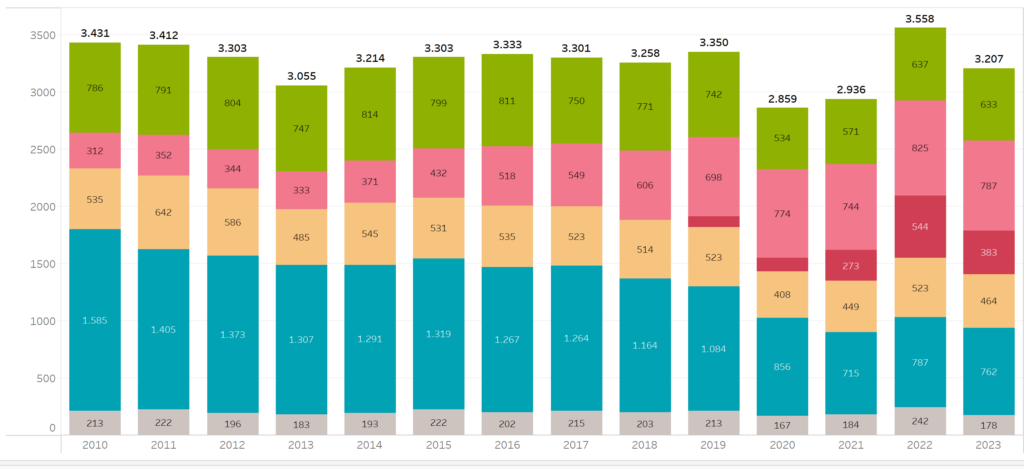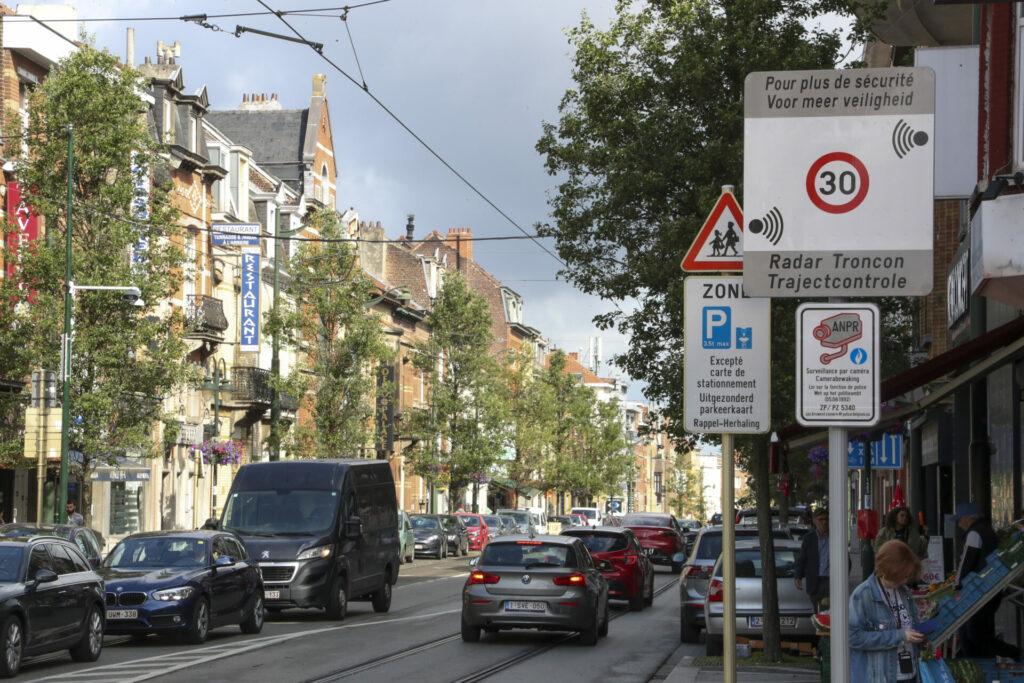After three years of a general 30 km/h speed limit across Brussels, there has not only been a general decrease in average speed, but the Capital Region has become quieter and residents' quality of life has also improved.
By regularly measuring motorists' speed at 80 locations across Brussels since November 2020 (separately from speed checks), Brussels Mobility saw a visible drop in average speed on all roads, indicating that more and more drivers of motorised vehicles are complying with speed limits.
"A quieter city: that is the result of thousands of motorists who have adapted to the City 30. Fewer accidents, fewer casualties, less noise: the City 30 makes our city more pleasant, more liveable," said Brussels Mobility Minister Elke Van den Brandt.
On 1 January 2021, a speed limit of 30 km/h became the general rule on the capital's streets, resulting in a general decrease in average speed as well as fewer serious accidents and less noise pollution. Strikingly, the measure has had a lasting positive effect everywhere, including on roads where the speed limit was not lowered.

The difference in average speed between November 2020 to 2023. Credit: Brussels Mobility
"Brussels is a pioneer in Europe, with cities such as Prague and Amsterdam taking the same path. My sincere thanks go to the people of Brussels: this is a collective effort," she added.
This speed reduction has a direct impact on the number and the severity of accidents: comparing the figures for the first three quarters of 2023 with previous years shows a positive City 30 effect.
After several years in which the figures were influenced by Covid-19 restrictions (2020-2021) or full resumption of activities after the measures (2022), the 2023 figures confirm a downward trend, Brussels Mobility said.
Fewer accidents
The bar chart below shows that pedestrians (green) and car occupants (blue) especially benefited from the new speed limits, with the number of casualties at the lowest since 2021 for both these types of road users. Cyclists (light pink) and e-scooter users (dark pink) also saw a decrease in injuries.
After a period of strong increases – which started before Covid for cyclists and during Covid for e-scooters – Brussels Mobility noted a significant drop in the number of casualties. This is remarkable when taking into account the significant increase in the number of trips using these means of transport.
A decrease was also observed among motorcyclists (yellow).

Credit: Brussels Mobility
Quieter city, better quality of life
By going from 50 km/h to 30 km/h, traffic noise pollution was reduced by more than half in some cases: measurements by Brussels Environment show that noise levels fall from between 1.5 to 4.8 dB(A), depending on the time of day, location, type of traffic and road surface.
A speed limit reduces noise caused by the friction of tyres on the road surface, as well as from braking and acceleration.
It also reduces the proportion of Brussels residents exposed to noise levels above the World Health Organisation (WHO) road traffic thresholds. Updated noise maps show that 30% of the population is exposed to noise pollution, down from 64% in 2016.
"This is a positive development for the peace, health and sleep of Brussels residents. Road traffic is the noise source that bothers residents the most," said Marie Poupé, noise expert at Brussels Environment.
"Noise pollution is also the second most significant environmental cause of illness rates, after air quality. Excessive noise exposure can lead to insomnia and hearing, learning and concentration problems and can increase cardiovascular risks," she stressed. "So it is a public health problem."
Related News
- More than one million trips a day on Brussels public transport in 2023
- The 10 traffic offences people in Belgium commit most
- The end of speeding? All new cars to be fitted with self-braking technology
As Brussels Mobility wants to further focus on enforcing speed limits to continue to reduce the number of serious accidents and noise pollution, speed checks will remain essential.
Therefore, the authorities will install 14 additional speed cameras this year, including on Avenue du Panthéon, Chaussée de Ninove, Avenue des Gloires Nationales and Avenue Woeste, among others. Discussions with the municipalities and police zones concerned are currently ongoing.

